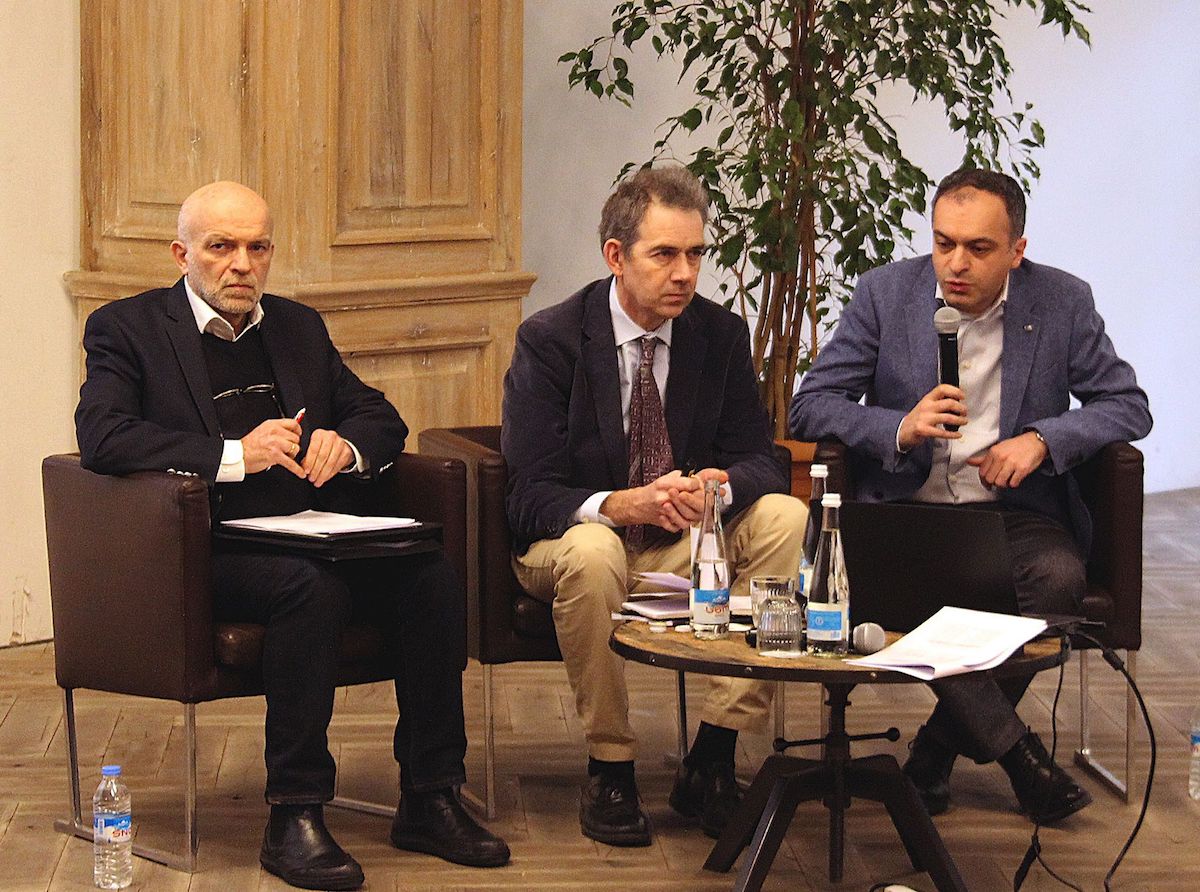Thomas de Waal: the self-isolation of Abkhazia is a huge problem

Uncertain Ground: Engaging With Europe’s De facto States and Breakaway Territories is the name of the new work by Thomas de Waal, a well-known conflict analyst in the South Caucasus.
De Waal presented his new book in Tbilisi on 9 January. The presentation was organised by Carnegie Europe in partnership with Go Group Media.
Thomas de Waal, a senior fellow at Carnegie Europe, shared his vision of the situation concerning conflicts in Abkhazia, Transnistria and Northern Cyprus.
“These conflicts are united by the long-term existence of these territories in the uncertain status of unrecognized or partially-recognized states, the absence of hostilities and the protracted negotiation process,” said de Waal.
• How to make Georgia great again: Thomas de Waal vs Mikheil Saakashvili
• Op Ed: Thomas de Waal – open Georgia, closed Georgia
Regarding the situation in Abkhazia, de Waal noted that within the framework of the current non-recognition policy, the European Union should still significantly increase its interaction with Abkhazia, including programmes in the field of education, health and environmental protection.
He further said that a “paradoxical situation” developed in Abkhazia after the August 2008 war:
“The recognition of independence by Russia brought Abkhazia more investments – more money for the economy, but at the same time international isolation.
“International organizations left Abkhazia. Part of the crossings over the administrative border on the Inguri River, which were used by the local population, were closed.”
He called the self-isolation of Abkhazia “a huge problem”, including for Tbilisi and the international community.
Archil Gegeshidze, director of the Levan Mikeladze Foundation and former Georgian ambassador to the United States, noted that there is a significant difference between the conflicts in North Cyprus, Transnistria and Abkhazia.
“In Transnistria and in Cyprus there has been a transformation of the conflict from violence to a legal and political process; in this case [Abkhazia] there are again and again cases of violence,” said Gegeshidze.
Gegeshidze added that an important factor is also the fact that the conflict in Abkhazia has a clear ethnic dimension, as the image of Georgia as the enemy is still popular in Abkhazia. It is also significant that the positions of Tbilisi and Sukhumi on the final outcome of the settlement diverge radically.
According to Gegeshidze, this is primarily why it is necessary to direct efforts to the transformation of the conflict.
The issue of cooperation between Europe and Abkhazia received particular focus.
“How can European cooperation with the de facto authorities of Abkhazia develop in conditions where representatives of the European Union observers mission are not allowed in, and the rights of ethnic Georgians are violated in the Gali district of Abkhazia?” asked Ivliane Khaindrava, former deputy secretary of the National Security Council of Georgia.
As de Waal noted, the issue of the rights of the Georgian population of Abkhazia is very important, and international organizations should “offer more” to the population of Gali, and, in cooperation with Sukhumi, ensure that the situation with the rights of Gali residents improves.


















